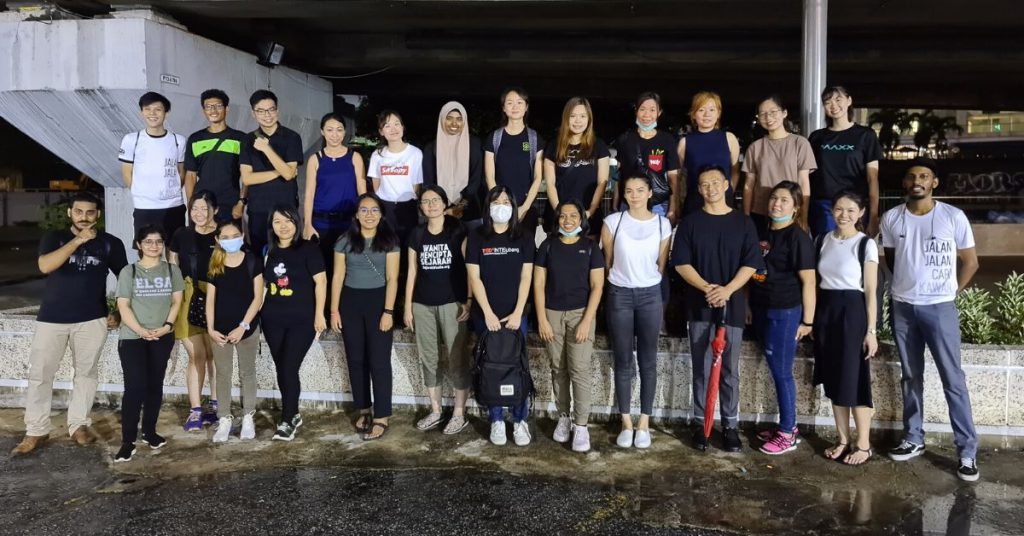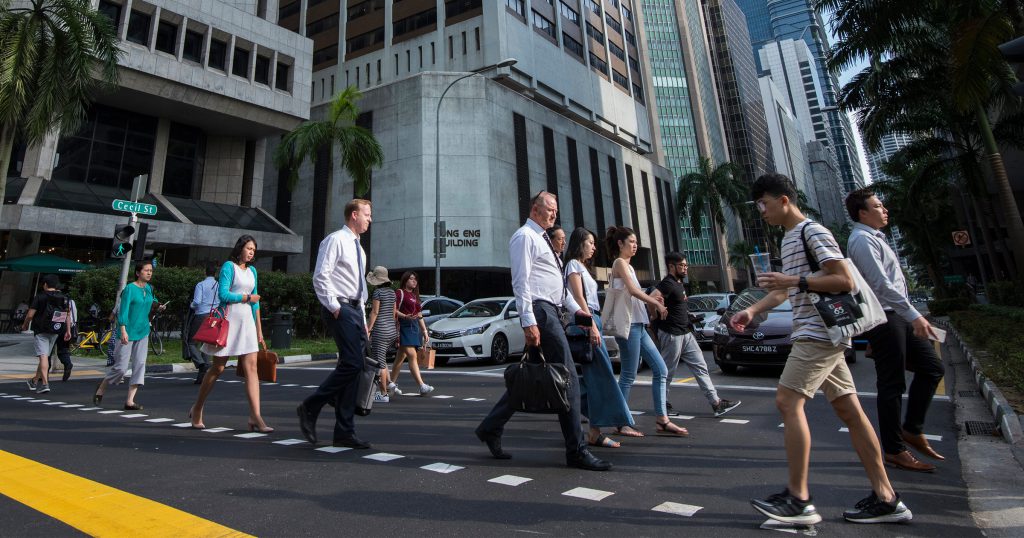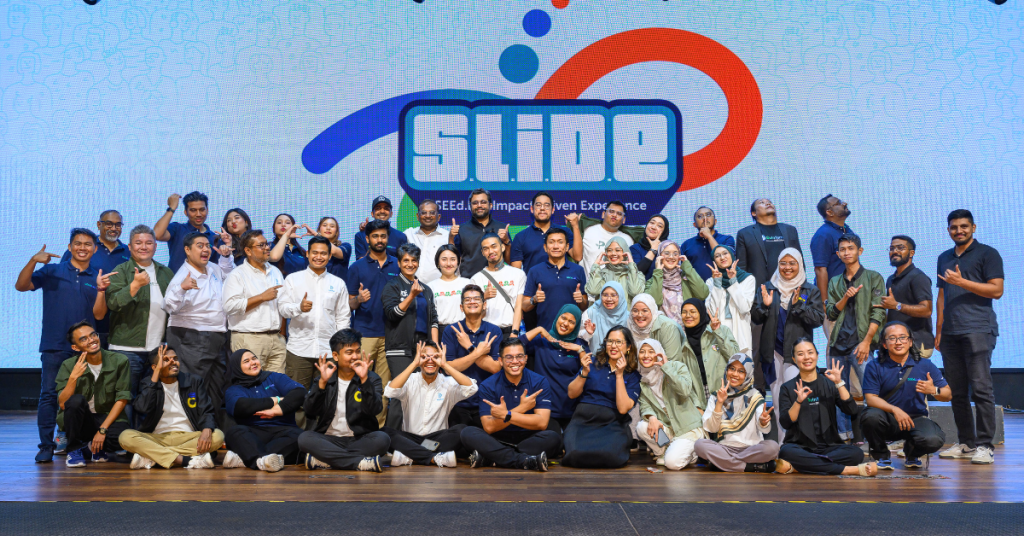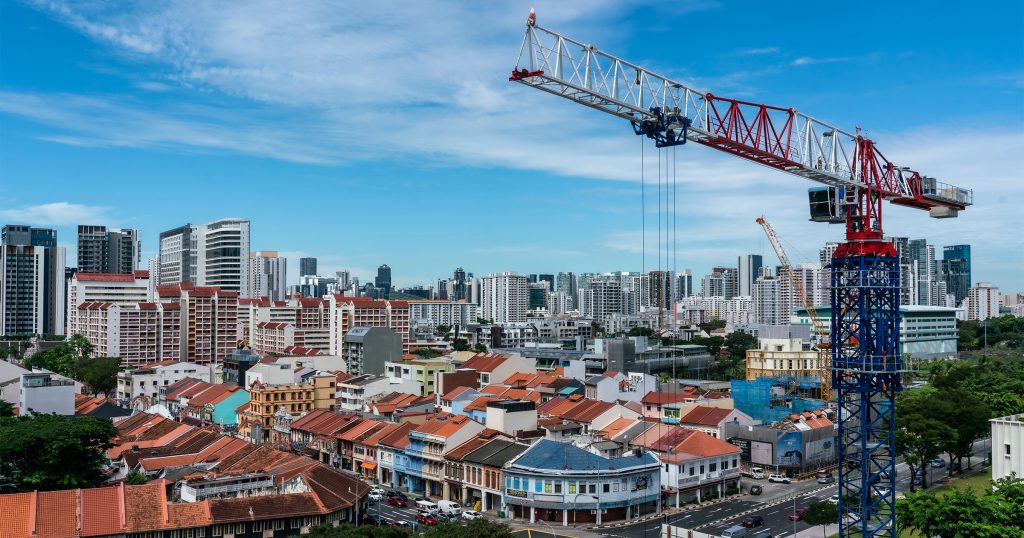Author’s Blurb: As someone who has only volunteered at animal shelters before, I’ve never experienced soup kitchens or anything of the like. I was expecting a typical volunteering service, but it ended up being more than that.
Back in March before the MCO, I volunteered to join the Street Feeders of KL (SFOKL) to follow them on their fortnightly volunteering. They give out food, water and necessities to street friends (the term used by SFOKL for the homeless) around KL city.
While that might sound like your usual volunteering, SFOKL also encourages volunteers to talk to the street friends and provide companionship to those who have fallen on hard times.
When we wrote about them in 2017, then-president Gary gave an insightful commentary on street friends. So, we caught up with the current president of SFOKL, Dylan, to talk about the current team and their efforts.
Big Numbers Don’t Always Mean Big Effects
While we were waiting for volunteers to arrive, Dylan explained to me that back then, they had to cover about 10 routes in KL alone. But now, they’ve reduced the routes to half of that, and less.

He then recalled that during one of their sessions near Christmas, they had about 1,000 volunteers with only a few leaders. “It was stressful, having 1,000 people cross the road safely, and communicating was difficult.”
So now, they’ve restricted and reduced the number of volunteers joining as they do not want a face a similar situation.
Throughout the night, they also kept emphasising on the importance of staying safe.
“If you encounter a street friend that is hostile or demanding, talk to us (the leaders), and we’ll help to diffuse the situation,” Dylan shared.
Halfway along our first route, rain began pouring, so the leaders had to reorganise and replan our route. Despite that, we still managed to give out all the food and drinks that we had that night.

Giving Street Friends The Right Support
At our last stop, I finally mustered the courage to talk to a street friend who introduced himself as Mr Azman.

Originally from Sabah, he came to KL in search of work. But he had to live on the streets after he was let go of his job as a security guard by his former employer.
“I had a stroke,” said Mr Azman, pointing to his left chest, “And I was unable to use my hands for a while.” He told me that he’s now fully recovered, but finding a job at his age is tough. He’s tried applying to other security posts but said that he didn’t have much luck.
So, I asked him if there was anything else that he needed aside from food and drinks. He replied that while food and drinks are ample, he’d like to have better shoes, as the good pair he had were stolen while he was sleeping.
We actually stumbled upon other NGOs that night as well, and they were providing warm food and drinks to the street friends too.

For SFOKL, Dylan told us that they opted for bread and bottled water as these could last longer, and their main goal was to provide companionship and reach out to the street friends instead of just giving food.
Different Street Friends With Different Needs
Previously, Dylan told me that he classifies street friends into 3 categories:
- Chronic: Has been living the lifestyle for a while now, not willing to change their habits;
- Half-Half: They’re not chronic, and still have the desire to get a job and leave the lifestyle;
- Not There Yet: People who have fallen on hard times.
“Chronic street friends are the ones that have been here for months or even years. We even have street friends that have been living the lifestyle for 10 years or more,” said Dylan.

Even if they got a job for a chronic street friend, it might not work out because they were used to the lifestyle and changing habits are difficult, he added.
So, they focus their efforts on the street friends that show the desire to change. Even so, it’s easier said than done.
He recalled an example of a street friend whom they managed to find a job for, but he didn’t stay in it for long because the street friend preferred the lifestyle that he had, and going to work was a hassle.
There’s Always A Stigma
According to Dylan, the street friends actually get a lot of support in terms of food and drinks, but most NGOs don’t focus on mental health, and that’s what SFOKL wants to assist with.
Of course, there’s a reason that people go into homelessness. Be it family or financial issues, there’s always something that pushes someone into that lifestyle.
“We’ve organised events at Ruang during festive periods to offer street friends a roof to sit on, eat and chat with us. We could always do more, but it needs to be done in a proper way,” Dylan explained.
He’s thinking of doing a mental health programme for the street friends and he’s reached out to mental health professionals for it, but nothing is set in stone yet.
One thing he wishes people would understand is that sometimes, just a little chat to get to know and understand the street friends could help them out.
“Some of them are lost in their way. They can’t figure a way out of this lifestyle.”
So, SFOKL wants to be the platform and the intermediary to bridge the gap between mental health professionals and street friends.

The bread that was given out that night was sponsored by a bakery in Mont Kiara and they’ve collaborated for a while now, but SFOKL wishes for more sponsors.
To keep doing what they do and more, Dylan hopes that more companies and collaborators will offer up their help.
Bottom Line: Even though it rained throughout the night and I didn’t manage to talk to many street friends, the experience was enlightening. Once the pandemic and MCO are over, I hope to volunteer again as I believe that SFOKL is tackling an issue that not many NGOs are tackling in Malaysia.
- You can read more about SFOKL here.
















